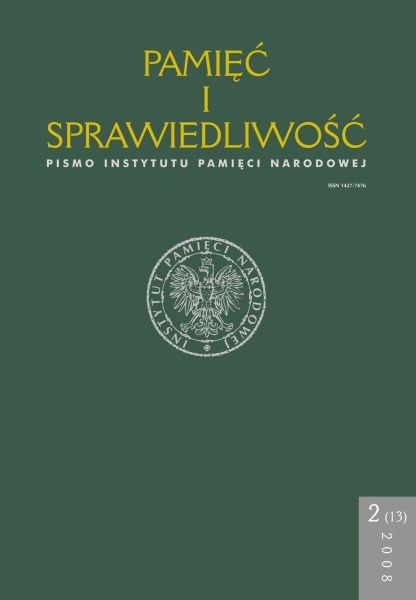Managers of Enterprises and the Party Apparatus. The Case of Warsaw, 1949–1955
Remembrance and Justice, Vol. 13 No. 2 (2008), pages: 141-156
Publication date: 2008-12-30
Abstract
In communist Poland enterprises, along with the entire economy, were subordinates to the state administration, thus their managers to a large decree became civil servants. Yet the economy was also of interest to the party and its apparatus, which in its capacity as state-party supervised the activities of factories and its managers and through the nomenklatura system, had a decisive infl uence over staffing of management posts in enterprises. In this article the author, basing on
materials from the archives of the Warsaw Committee of the PUWP, examines the relations between the party apparatus and enterprise managers in the fi rst half of the 1950s. On one hand analyzing the dependence of managers on PZPR functionaries, and on the other examining the level of autonomy managers actually had and whether they exploited the party apparatus to further their own goals.
Maciej Tymiński discusses in turn the formal status of enterprise managers and the principles of party supervision of enterprises. Then he addresses the actual relations between party functionaries and enterprise managers – control on the part of the apparatus, functioning of the nomenklatura system, as well as methods employed by managers to manipulate party functionaries and taking advantage of their connections. In the next part, he analyses methods employed
by enterprise managers in order to gain greater autonomy within their jobs. The author concludes that while party functionaries had substantial influence on the situation of enterprise managers already in the early 1950s there arose informal mechanisms allowing greater freedoms to managers. After 1956 these became the basis for building trade or local interest groups, which in the 1970s took control of segments the local authorities.
 Język Polski
Język Polski
 English
English
 Deutsch
Deutsch
 Français (France)
Français (France)
 Italiano
Italiano
 Русский
Русский


 PDF (Język Polski)
PDF (Język Polski)
